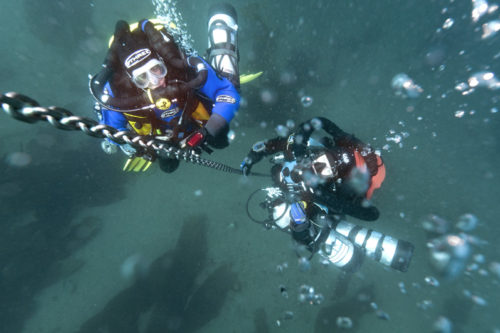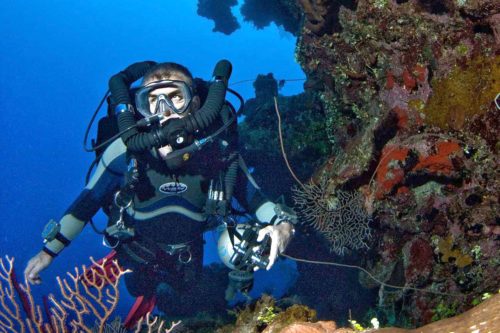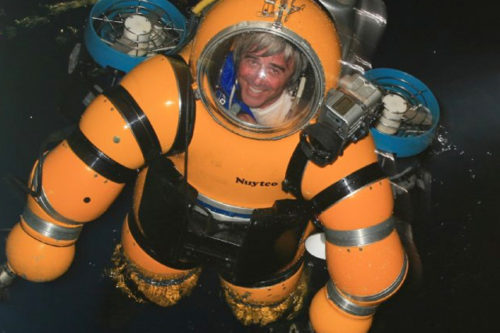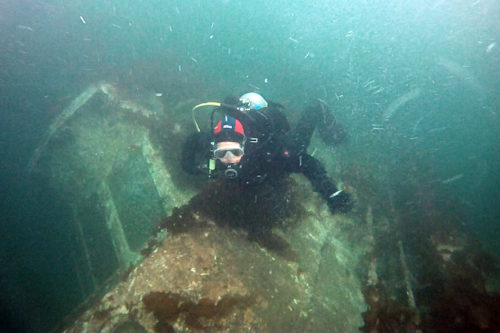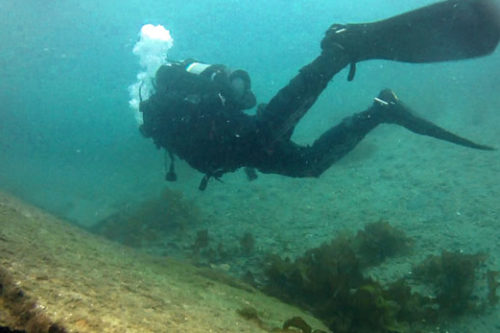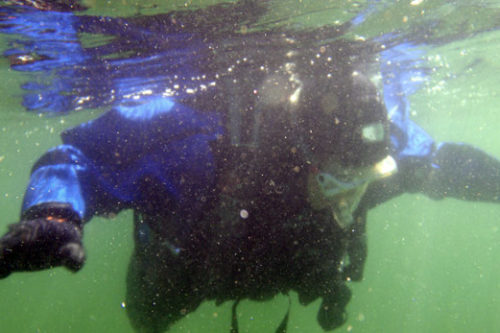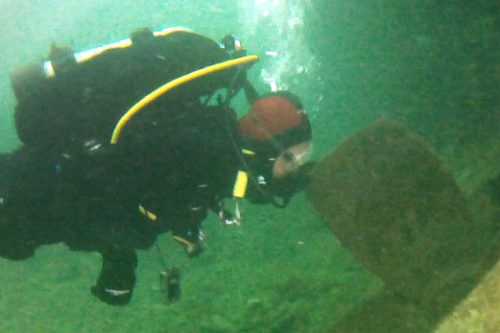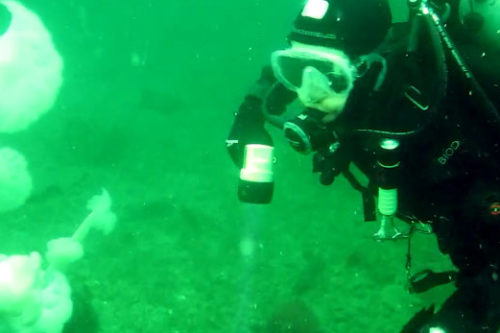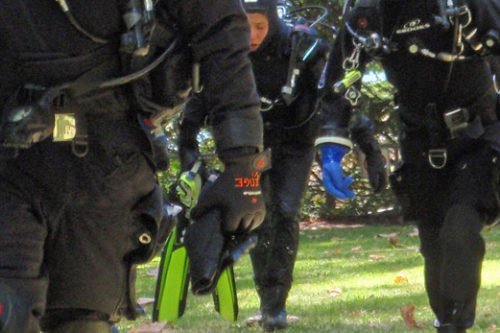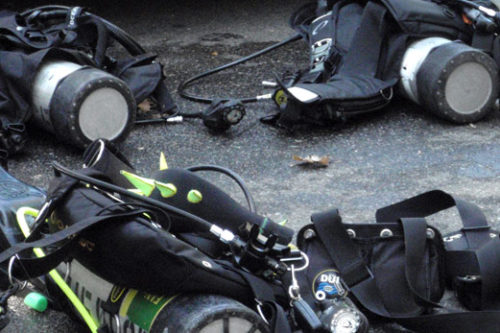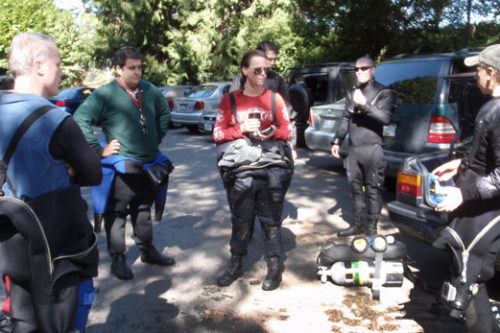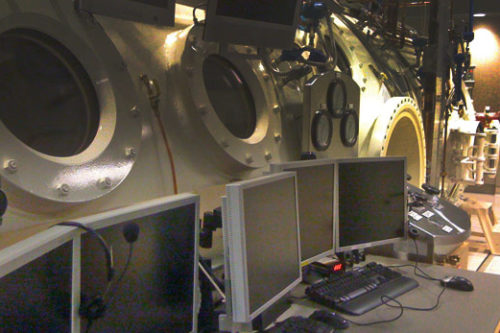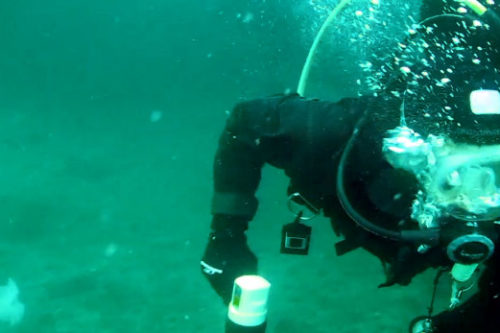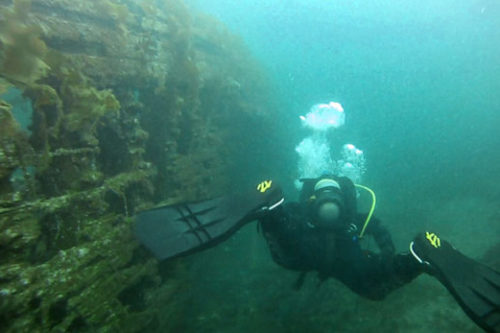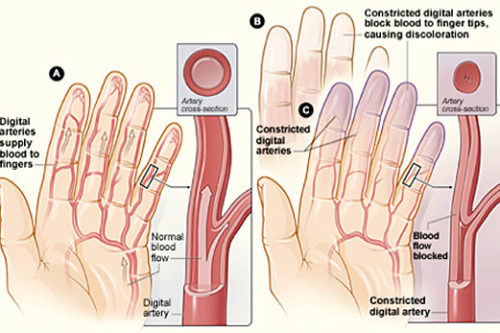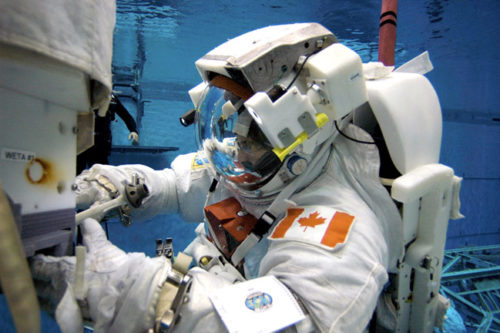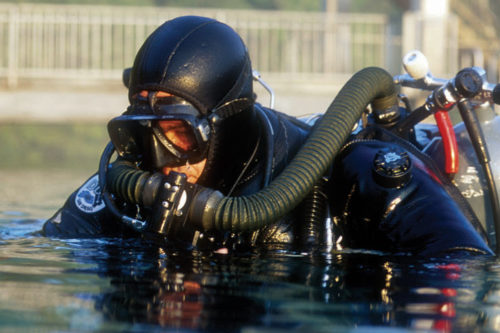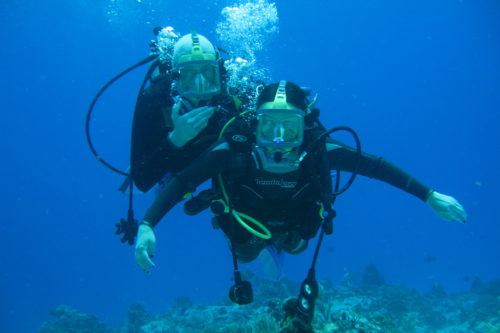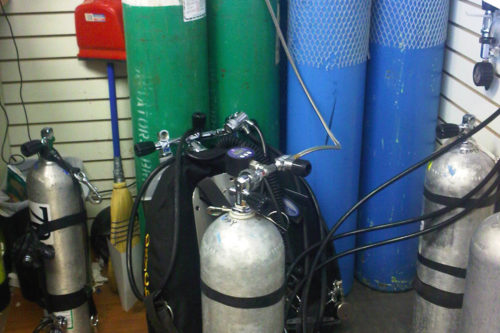Category: Education
PADI on rebreathers: Are they safe for recreational divers? Pt1
- DIVER Editorial
- 18th May 2012
The world’s largest dive training agency thinks they are, and they’ve developed courses for the rec and tec diver alike. Here, the agency’s Vice President of Rebreather Technologies, Mark Caney, weighs in on PADI’s new direction, the rise of a new ‘Type-R’ recreational rebreather, and the voice of opposition. …
Read MorePADI on rebreathers: Are they safe for recreational divers? PT2
- DIVER Editorial
- 30th April 2012
The Professional Association of Diving Instructors (PADI), the world’s largest scuba training agency, has expanded its course offerings in recent months to include recreational rebreather instruction. What follows is the continuation of an interview with Mark Caney, PADI’s Vice President of Rebreather Technologies, published in the current issue of …
Read MoreJames Cameron Remembers Mike deGruy
- DIVER Editorial
- 21st February 2012
The underwater world and the diving community have suffered a loss with the deaths of Mike deGruy and Andrew Wight, killed in a helicopter crash February 3 near Sydney, Australia. Both men were divers of long experience and professionals in the media world, bringing the beauty and excitement of …
Read MoreEpilepsy/Seizures and Diving
- DIVER Editorial
- 17th January 2012
Diving Medicine By Dr. David Sawatzky A seizure is a sudden surge in electrical activity of the brain that alters how an individual feels or acts for a short period of time. In a classic ‘grand mal’ seizure a person looses consciousness, all of their muscles contract for up …
Read MoreFainting and Diving
- DIVER Editorial
- 17th January 2012
Diving Medicine By Dr. David Sawatzky In the last column we looked at epilepsy and seizures. However, epilepsy and seizures are a relatively rare cause of loss of consciousness. The most common cause of loss of consciousness is fainting (syncope) and it results in one of every 30 visits …
Read MoreLOC While Breath-Hold Diving
- DIVER Editorial
- 17th January 2012
Diving Medicine By Dr. David Sawatzky In this column we will look at the breath-hold diver who suddenly looses consciousness in relatively shallow water. These individuals often die from drowning. This phenomenon has been called ‘shallow water blackout’ but the term should be avoided – it’s confusing. Initially shallow …
Read MoreCoughing While Diving
- DIVER Editorial
- 17th January 2012
Diving Medicine By Dr. David Sawatzky Frequently, I receive reader questions. The following (edited) enquiries raise several issues of interest. Does Nitrox Have a Taste? Should Nitrox taste any different from regular air? I’ve noticed a difference. Air is odourless and tasteless in contrast to Nitrox, which I found …
Read MoreHigh Pressure Neurological Syndrome
- DIVER Editorial
- 17th January 2012
Diving Medicine By Dr. David Sawatzky In the last two columns I reviewed inert gas narcosis. High Pressure Neurological (Nervous) Syndrome (HPNS) is a similar problem that is experienced on deeper dives. It is a difficulty that recreational divers will never experience but advanced technical divers are increasingly performing …
Read MoreWhy Do I Need to Pee Every Time I Dive?
- DIVER Editorial
- 17th January 2012
Diving Medicine By Dr. David Sawatzky Every diver knows that when they go diving they need to pee. They also know that any cold water diver who claims never to have peed in their wetsuit is either lying or has logged very few dives. Finally, it’s fair say that …
Read MoreDehydration and Diving
- DIVER Editorial
- 17th January 2012
Diving Medicine By Dr. David Sawatzky In the last column I talked about the reasons urine production is increased while we are diving and what we can do about it. In this column I will continue that discussion by looking at other reasons divers are almost always dehydrated during/after …
Read MoreSports drinks: You Can Drink and Dive and It Can Help
- DIVER Editorial
- 17th January 2012
Diving Medicine By Dr. David Sawatzky In any discussion on dehydration, the topic of electrolytes must come up. So what are electrolytes? In Stedman’s medical dictionary an electrolyte is defined as “any compound that, in solution, conducts electricity and is decomposed by it; an ionizable substance in solution”. Ions …
Read MoreIs diving addictive?
- DIVER Editorial
- 17th January 2012
Diving Medicine By Dr. David Sawatzky All of us enjoy diving or we would not be doing it. Often we feel better when we are diving. A subset of divers seem to really enjoy diving deep on air. Is diving addictive? Narcosis is a fascinating topic and supports the …
Read MoreFatalities: Inexperience a Big Factor
- DIVER Editorial
- 17th January 2012
Diving Medicine By Dr. David Sawatzky Every year approximately 100 people die in North America while diving, and another 100 die while diving in the rest of the world. Diving is a relatively high ‘risk’ activity. By that I mean there are many ways in which you can be …
Read MoreBuoyancy Control- It’s An Inside Job
- DIVER Editorial
- 17th January 2012
Diving Medicine By Dr. David Sawatzky In the last column I looked at diving fatalities and noted that poor buoyancy control was a significant factor. Buoyancy control is by far the most difficult skill to master in diving and the easiest one to lose. Therefore, in this column I …
Read MoreRaynaud’s Symptoms and Diving
- DIVER Editorial
- 17th January 2012
Diving Medicine By Dr. David Sawatzky I was recently consulted on the case of a commercial diver who presented with cold, white, painful fingers after walking outside on a cold windy day. When the diver was questioned it was discovered that they often experienced similar symptoms while diving and …
Read MoreDining Out with Sacred Cows
- DIVER Editorial
- 10th January 2012
He’s not a shark expert, hasn’t studied their behaviour, and doesn’t champion their cause, although he was once bumped by a shark not looking where it was going. Good job our man Sawyer doesn’t bear a grudge. Text by H.E. Sawyer – Illustration by Peter Dahl-Collins I’m sorry, but …
Read MoreSkywalker – Canada’s Diving Astronaut
- DIVER Editorial
- 10th January 2012
Dave Williams was just a kid when he made a farsighted commitment that eventually saw him blast off for the international space station. And his boyhood dive training and years of experience in the sport backstop his record setting spacewalks. Text by Dave Williams My helmet lights reflect …
Read MoreMarketing Rebreathers
- DIVER Editorial
- 31st October 2011
Jarrod Jablonski talks with Michael Menduno Credit Where Credit Is Due In my interview with explorer Jarrod Jablonski in DIVER Vol. 37 Number 1, I incorrectly stated that Jablonski and his team from Global Underwater Explorers were the first to video the USS Atlanta in 430 feet (130m) …
Read MoreFeel Good Diving
- DIVER Editorial
- 26th October 2011
Wearing a blackout mask Diveheart founder Jim Elliott had an epiphany of the senses. In that tactile moment he understood that diving is not for eyes only. Text by Andrew Leibs – Photographs Courtesy Diveheart On the surface, scuba diving seems purely visual. The very phrase conjures images …
Read MoreHelium RI$ING?
- DIVER Editorial
- 7th July 2011
Reserves are going down, which may mean prices go up? And how might that affect the future of mixed gas technical diving? The answer is up in the air. Text by Jeremy Heywood and Lee Newman The future of mixed gas technical diving may be uncertain due to …
Read More
